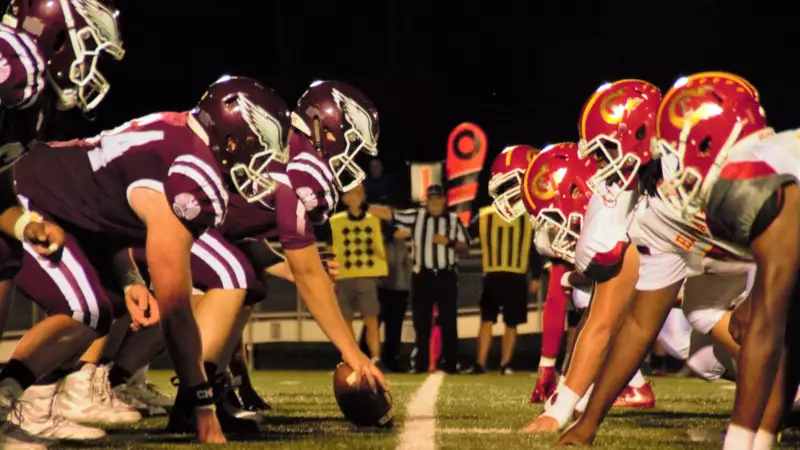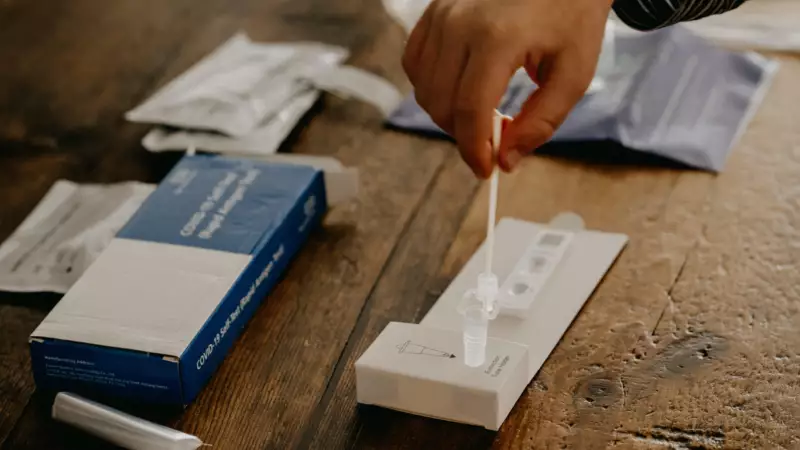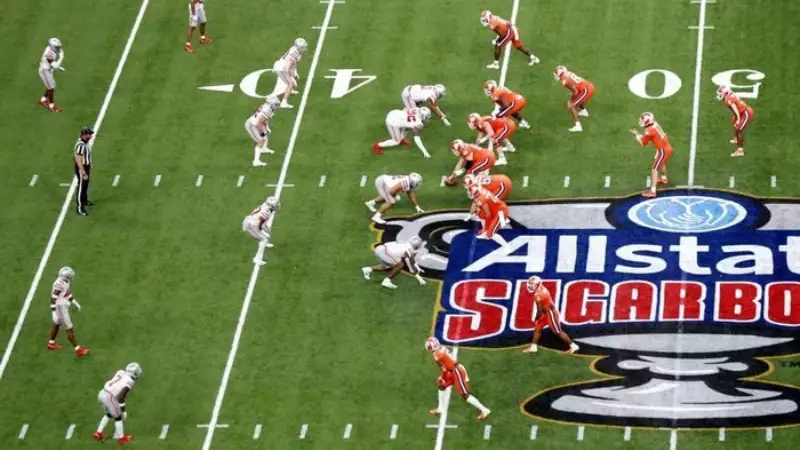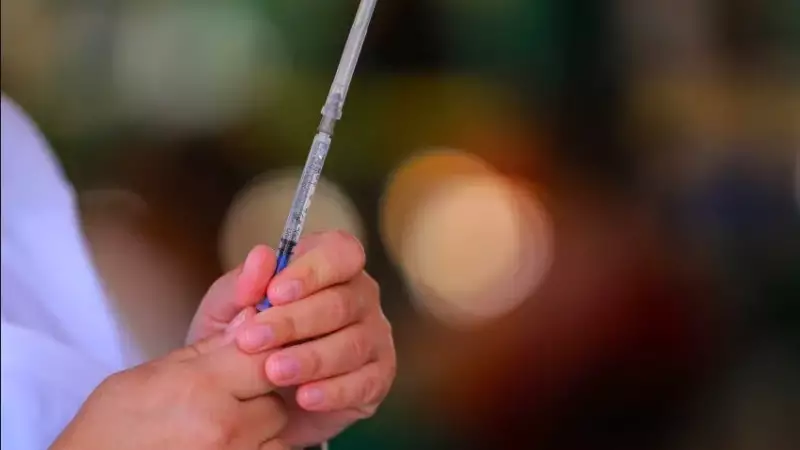August 26, 2021 | Open Letter to College and University Leadership for COVID-Safe Sports
Beating the Pandemic Though #CovidSafeZones on Game Day
The United States is at a critical juncture in our efforts to move beyond the Delta wave and the COVID-19 pandemic. More than 170 million Americans – representing 60 percent of the eligible population – have been fully vaccinated, providing substantial protection against illness, reducing deaths, and lessening the burden on hospitals. We are now facing the COVID-19 Delta variant, however, which presents a much greater threat than the strain collegiate sports leagues faced last year.
The simple fact is that increasing vaccination rates is our nation’s most immediate and best hope of reaching population immunity, beating the pandemic, and restoring our national vitality and way of life – including the coming year of the college experience.
It is a particularly critical time for college sports, which will be holding many events that bring communities together – including football games with tailgates and tens of thousands of cheering students and fans. Outbreaks within teams and among fans could be disruptive to the season, sports, and communities. Young people are facing serious illness and hospitalization. Evidence is also accumulating on lasting consequences for many athletes from COVID-19 infections, even mild ones. Fortunately, we have the tools at our disposal to keep these infections, disruptions, and serious consequences to a minimum.
Low vaccination levels are what enable serious Delta-driven outbreaks. Vaccinated people can become infected and spread the virus to others, but they are much less likely to be infected and are generally protected against severe disease, hospitalization, and death from the Delta variant. Consequently, college sports events involving people who are not vaccinated create substantial risks of COVID spread, disruptions, and health impacts. College and university leaders, sports conferences, coaches and student athletes can have a substantial impact on keeping Americans safe, while respecting individual liberties.
Those who remain unvaccinated are diverse. It is crucial to remember that many have legitimate questions and concerns about getting vaccinated that need to be respected and addressed.
The nation’s colleges and universities have demonstrated that they can take thoughtful steps to address these questions and concerns and make their campuses and events safer. Along with professional sports leagues, they’ve also helped us learn a lot about approaches that have proven effective in bringing people together to reopen sports events.
We have come together as public health and science experts, leaders in health, education, and civil society, and former officials from both political parties, to propose that American businesses implement a set of recommendations called #COVIDSafeZones – common sense, achievable, and temporary measures that can be applied by any private sector enterprise with minimal disruption and major benefits for workplaces and the country.
Today we are providing similar common-sense recommendations that can have broad benefits for college athletes, teams, leagues, and the fans and communities across America who support them.
First, we believe that college sports should set a goal for vaccination rates for their athletes – at least 90%, preferably higher. Such a goal is highly achievable and would serve as a model for the country and particularly young fans, The Autonomy 5 Conferences’ assessment of their vaccination initiatives so far indicates that they have already achieved rates averaging over 85% among student athletes and staff. This is much higher than the vaccination rate for Americans aged 18 to 25. Some teams are approaching 100% vaccination. Teams and leagues should report their progress, or share aggregated data, to inspire others.
Evidence also shows that events, public service announcements, and social media initiatives involving coaches and players can make a real difference in promoting vaccination among fans. Fans will often act on the advice of their favorite coach or player, and to help the “team,” even when they wouldn’t otherwise act to protect themselves or their community. This is a best practice in many of the professional sports leagues. It’s consistent with the broad support of the nation’s governors to encourage vaccination.
Requiring Vaccination for Students, Athletes, Faculty, and Staff. Because maximizing vaccination is so critical to the protection of those participating in in-person college activities, a growing number of colleges and universities now require vaccination for all students and university personnel, with medical and religious exceptions. This is clearly the best way to protect students, staff, and faculty where there is frequent close contact with many individuals who may be infected. Consequently, we strongly support these efforts to vaccinate all students, student athletes and athletic personnel. Vaccination to play is a great mantra that can impact high school and youth sports where vaccination rates are even lower.
Screening for Infectiousness. We also urge adoption of an appropriate infection screening protocol for sports teams. This should include routine testing, since repeat negative tests provide a high degree of certainty that an individual is not infectious. More frequent testing should be done where rates of community spread are higher, and in sports with close contact. Frequent testing is especially important to prevent serious outbreaks if masking requirements are not feasible, and for individuals who are not vaccinated.
Alongside supporting vaccination and protecting student athletes, you can also take critical steps to protect fans and communities at upcoming sporting events:
- Support for Vaccination on Game Day. Offer rewards such as special seating, less distancing, cash or gift cards, and other incentives for fans to be vaccinated prior to or during attendance at games. Offer access to vaccination supported by alumni and other sports leaders.
- Proof of Vaccination. Require fans to provide proof of full vaccination (accounting for the appropriate time period after the final vaccine) or a recent negative COVID-19 test if possible. If such screening is not feasible or is prohibited, require masks and additional distancing, and allow those who provide proof of vaccination to bypass some of the measures to prevent spread due to the higher risk of infection for unvaccinated individuals.
- Mask Use. Mask use at sporting events should follow the latest recommendations from the CDC, which currently advise well-fitting masks in public indoor settings or close-contact large gatherings in outdoor settings in substantial or high prevalence zones. Outdoor events also involve close contact in closed spaces, including public transportation to and from events, restrooms, and entryways. Many colleges and universities are offering masks at indoor and outdoor venues to increase use. Where masks are needed, N-95s or their equivalent offer the highest level of protection. High rates of vaccination will reduce the need for masking and other restrictions.
- Improved Ventilation. For events in indoor settings, and for components of outdoor events with extended close contact, a range of measures can improve air circulation and reduce risk of spread.
These recommendations are temporary measures until we are reliably back to low COVID rates and the public health threat is behind us. The recommendations can be combined with other steps such as distancing.
We recognize that some states have enacted Executive Orders or laws that restrict your ability to keep a healthy and safe environment. Based on recent U.S. Supreme Court action and responses in some states, we believe you should closely monitor the enforceability and implementation of those restrictions, keeping the focus on safe zones which maximize the safety of your populations. Ultimately, the leagues, universities, and teams must maintain their accountability for the safety of their players and premises.
We also recognize that any protocols create some burden and cost for colleges and universities, their students, student athletes and staff, and college sports fans. Still, these will be relatively modest compared to the significant cost of health impacts on students, student athletes, disrupted games, and college and community outbreaks that result from failure to take reasonable steps to prevent COVID-19 spread.
What college leaders, student athletes, coaches and staff say and do to prevent infections will matter this fall for millions of Americans. You have a critical role to play now to move our country forward together, to support your students and communities, and respect both public safety and individual liberty.
Signed By
Jerome M. Adams
20th Surgeon General of the United States
Barbara D. Alexander
President, Infectious Diseases Society of America; Professor of Medicine and Pathology, Duke University
Melody C. Barnes
Fmr. Director, White House Domestic Policy Council
Georges C. Benjamin
Executive Director, American Public Health Association
David Brailer
Fmr. National Coordinator for Health Information Technology
John Bridgeland
Co-Founder & CEO, COVID Collaborative; Fmr. Director, White House Domestic Policy Council
Robert M. Califf
Prof. of Cardiology, Duke School of Medicine; Fmr. FDA Commissioner
Richard Carmona
17th Surgeon General of The United States; Distinguished Professor University of Arizona
Raymond G. Chambers
Co-Founder, COVID Collaborative; WHO Ambassador for Global Strategy
Tom Daschle
Fmr. U.S. Senator (D-SD); Fmr. Senate Majority Leader
Carlos del Rio
Professor, Emory University School of Medicine; International Secretary, National Academy of Medicine
Karen DeSalvo
Fmr Asst Secy for Health (Acting), Natl Coordinator for HIT, and New Orleans Health Commissioner
Mark Dybul
Co-Director, Georgetown Center for Global Health & Impact; Fmr. ED, Global Fund for AIDS, Malaria, TB; Fmr. U.S. Global AIDS Coordinator
Gary Edson
President, COVID Collaborative; Fmr. Deputy National Security Adviser
Joycelyn Elders
15th Surgeon General of the United States
Ezekiel J. Emanuel
Vice Provost for Global Initiatives, Co-Director, Healthcare Transformation Institute, Levy University Professor, Perelman School of Medicine and The Wharton School, University of Pennsylvania; Fmr. Special Advisor on Health Policy, Office of Management and Budget and National Economic Council
Tom Frieden
President & CEO, Resolve to Save Lives; Fmr. Director, CDC
William H. Frist
Fmr. U.S. Senator (R-TN); Fmr. Senate Majority Leader
Monica Gandhi
Professor of Medicine and Associate Division Chief, University of California San Francisco / San Francisco General Hospital
Scott Gottlieb
Resident Fellow, American Enterprise Institute; Fmr. FDA Commissioner
Margaret (Peggy) Hamburg
Fmr. FDA Commissioner; Fmr. Foreign Secretary of the National Academy of Medicine
Ashish Jha
Dean, Brown University School of Public Health
Vanessa Kerry
Director of Public Policy and Social Change, Harvard Medical School
Rebecca Katz
Professor and Director Center for Global Health Science and Security, Georgetown University
Mike Leavitt
Fmr. U.S. Secretary of Health & Human Services; Fmr. Governor & U.S. Senator (R-UT)
Mark McClellan
Dir, Duke-Margolis Center for Health Policy; Fmr. FDA Commissioner & Adm, Center for Medicare & Medicaid Services
Melanie Ott
Director, Gladstone Institute of Virology; Professor of Medicine, University of California San Francisco
Deval Patrick
Fmr. Governor (D-MA)
Steven Phillips
Vice President Science and Strategy COVID Collaborative; Frmr. Medical Director, Global Projects, Exxon Mobil Corporation
Kathleen Sebelius
Fmr. U.S. Secretary of Health & Human Services; Fmr. Governor (D-KS)
Lisa Sherman
President & CEO, The Ad Council
Robby Sikka
Chair, COVID Sports and Society Workgroup
Andy Slavitt
Fmr. Senior Adviser to COVID-19 Response Coordinator; Fmr. Acting Adm, Center for Medicare & Medicaid Services CMS
Seema Verma
Former Administrator, Centers for Medicare and Medicaid Services
Robert M. Wachter
Chairman, Department of Medicine, UCSF
James Wilkinson
CEO, American College Health Association
Michelle Williams
Co-Founder, COVID Collaborative; Dean, Harvard T.H. Chan School of Public Health
Philip Zelikow
Director, Covid Commission Planning Group; Professor, University of Virginia
Creating #COVIDSafeZones for Collegiate Athletics
More than 890 colleges and universities have joined the President’s COVID-19 College Vaccine Challenge since it was announced in June 2021. As we move towards schools opening nationwide in a few weeks, it is imperative that we continue to increase our vaccination rate in younger demographics and incentivize vaccination at colleges and universities.
COVID Collaborative is a national assembly of experts, leaders and institutions in health, education and the economy and associations representing the diversity of the country to turn the tide on the pandemic by supporting federal, state and local COVID-19 response efforts. COVID Collaborative has created “COVIDSafeZones” with leaders in the business sector and higher education. The COVID Collaborative and Autonomy 5 conferences believe strongly that vaccination is an important method to slow the spread of COVID in the United States and protect our students and the community, from the effects of COVID and Post Acute Symptomatic COVID (PASC), which is increasingly being recognized among our youth.
Many schools have encouraged vaccination among student athletes and presently across the Autonomy 5 conferences over 85% of student-athletes and staff are vaccinated. This is a substantially higher percentage than the broader population of 18-22 year olds and represents a significant accomplishment for these colleges and universities. Student-athletes are providing the template for other students and the young people at these institutions should be recognized for raising the bar across the country and promoting public health. Indeed, more than 30 schools have greater than 90% of their student-athletes vaccinated, and many are nearing 100%, including some of the premier football programs in the country.
The COVID Collaborative and Autonomy 5 conferences continue to encourage students to vaccinate prior to attending games this fall and make these the safest possible events for their communities. Thus, COVID Collaborative has provided resources for schools wishing to plan vaccination events this fall, and with Week 1 of the season approaching, institutions in each conference will be supporting vaccination events. By vaccinating the broader student body and communities across the country associated with these large events, the safety of games this fall may improve, and allow us to continue to move forward as a society.
Signed By
Jerome M. Adams
20th Surgeon General of the United States
Bob Bowlsby
Big 12 Conference, Commissioner
John Bridgeland
Co-Founder & CEO, COVID Collaborative; Fmr. Director, White House Domestic Policy Council
Kyle Goerl, MD, CAQSM
Big 12 Conference Physician Chair; K-State Athletics, Team Physician
George Kliavkoff
Pac-12 Conference, Commissioner; On behalf of the Pac-12 COVID-19 Medical Advisory Committee
Chris Kratochvil, MD
Chair, Big Ten Task Force for Emerging Diseases; Global Center for Health Security Distinguished Chair; Associate Vice Chancellor for Clinical Research, UNMC; Vice President for Research, Nebraska; Medicine Chief Medical Officer, UNeHealth
Mark McClellan, MD, PhD
Dir, Duke-Margolis Center for Health Policy; Fmr. FDA Commissioner & Adm, Center for Medicare & Medicaid Services
Catherine S. O'Neal, MD
Associate Professor of Medicine, Infectious Diseases Louisiana State University
James J. Phillips
Atlantic Coast Conference, Commissioner
Greg Sankey
Southeastern Conference, Commissioner
Andy Slavitt
Fmr. Senior Adviser to COVID-19 Response CoordinatorFmr. Acting Adm, Center for Medicare & Medicaid Services CMS
Robby Sikka, MD
Chair, COVID Sports and Society Workgroup
Kevin Warren
Big Ten Conference, Commissioner
Cameron Wolfe, MD
Chair, ACC COVID Medical Advisory Group Associate Prof of Medicine, Infectious Disease, Duke University






